Health Benefits of Olive Oil That You Should Know
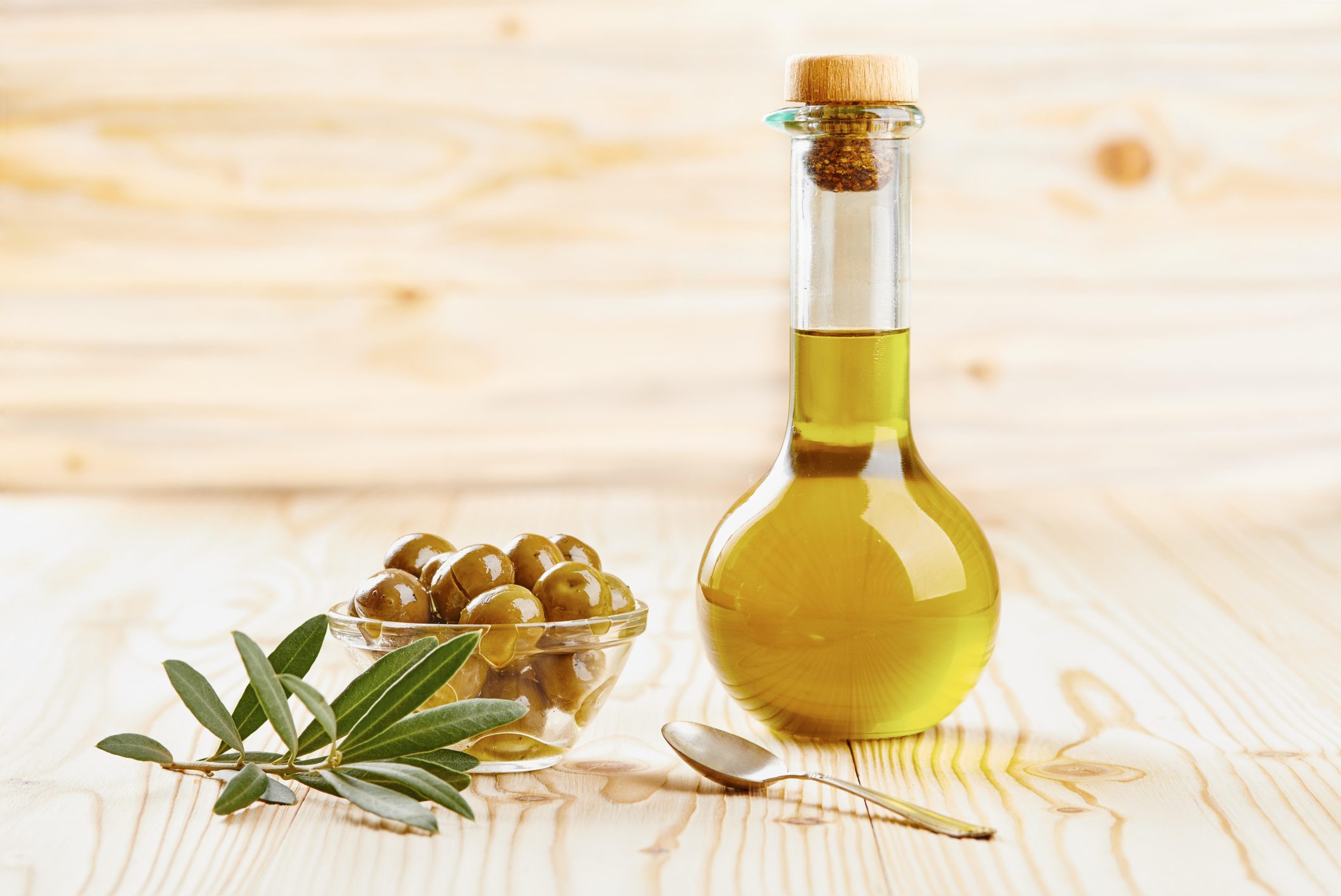
It’s easy to be perplexed by olive oil! After all, what’s the difference between extra virgin, light, pomace, and other types of olive oils, what are some of the olive oil’s advantages, and are certain olive oils fake? I wanted this to be the definitive reference on olive oil and olive oil in general, so I dug deep to discover much more than I already knew about the subject.
Extra virgin olive oil provides numerous health benefits, but beware of “fake” olive oils that do not match the high EVOO criteria. This comprehensive introduction to olive oil answers all of the most often asked concerns concerning types, benefits, fake vs. real, hexane extraction, and more.
I knew some of this from my 20-plus years at Whole Foods Market, but there was a startling amount of information I didn’t know, particularly about so-called phony olive oils.
What makes extra virgin olive oil different from virgin olive oil?
Even though I live in the United States, where “virgin olive oil” is rarely seen on grocery store shelves, I wanted to respond to your issue.
After all, it’s still used in restaurants, and you might be able to get it if you go shopping for restaurant supplies. If you live or travel to other countries, you might encounter it.
Extra virgin olive oil and virgin olive oil are prepared without excessive heat or chemicals in both circumstances. This method is known as cold pressing. Although many oils are cold-pressed (or expeller pressed), the phrases virgin and extra virgin are frequently used only for olive oil.
There is an organization called the International Olive Oil Council standards, believe it or not.
While not every country in the world is required to accept its authority, they were founded by the United Nations and has set the standards that most of us take for granted when it comes to olive oils for the past half-century.
It’s all about quality when deciding if olive oil is virgin or extra virgin.
They examine the flavor (fruity, bitter, etc.) and the acidity (it has to be at or under .08 to get labeled extra virgin). If the acidity is greater than.08 but less than 2.0, it is referred to as virgin.
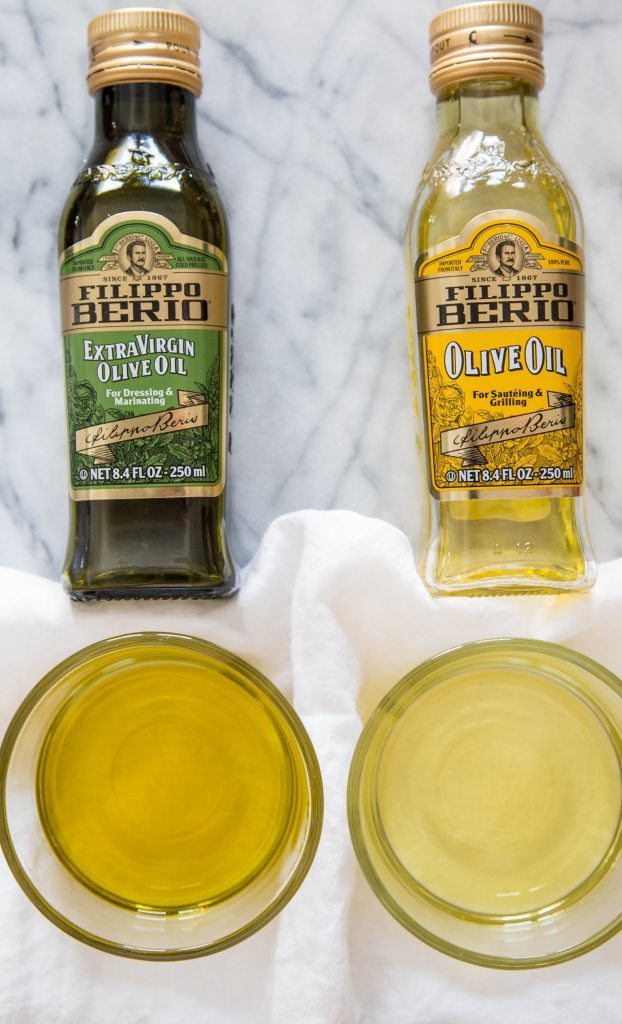
Is extra virgin the same as cold-pressed?
Although they are related, the short answer is no.
Extra virgin olive oil is cold-pressed by definition. Cold-pressed (which is the same as expeller pressed) implies that the oil was removed mechanically from the olive by a press (perhaps metal and occasionally large stones) and that the olive (and the oil) were not heated or chemically extracted.
To extract the oil out of cheap oils, hexane is frequently utilized.
Why would they use hexane if they can press the oil out? Because it extracts more oil from the olive than simply pressing.
As previously said, extra virgin olive oil is not only cold-pressed but also tested and rated for flavor and acidity, which must be at or below.
To be designated extremely virgin, the acidity must be less than 8.
What is hexane, and which oils utilize it in their manufacturing?
Hexane is a hydrogen-carbon molecule that is used as a solvent.
It’s a result of the oil and gas industry. However, it is also utilized in the following applications:
Gasoline Clothing Glue (it is used to clean and degrease items)
It’s also worth noting that hexane poisoning has been recorded among employees exposed to huge volumes of the chemical, including iPhone producers in China.
Although it is officially categorized as non-toxic, many health professionals, including my former employer Whole Foods Market, believe it is harmful to your health and refuse to sell it.
They’re most commonly found in culinary oils like canola and soy and non-virgin and extra virgin olive oils.
However, many soy-based goods, from veggie burgers to TVP (textured vegetable protein. Which is used as a substitute for meat to nutrition bars (if they contain soy), are frequently treated with hexane.
Surprisingly, the EPA states it can induce dizziness, sadness, nausea, and reproductive problems. The CDC list confirms most of that and says it can cause peripheral neuropathy. Still, the FDA, which regulates food in the United States, has no official position on hexane, and it isn’t required to be listed.
Most manufacturers state that the finished product on retail shelves contains little hexane.
Is extra virgin olive oil superior to olive oil?
The answer is yes, and in my opinion, you should only buy extra virgin olive oil.
Let’s look at the different sorts of olive oils you might find on your grocer’s shelves now that we’ve covered the distinction between virgin and extra virgin olive oil.
- Light Olive Oil - Has been chemically treated with hexane or other solvents to extract as much oil from the olive as feasible (and often pit, stems, and leaves). It was most likely heated to aid in the extraction of even more oil. After that, it’s filtered to eliminate solids and soften the hue. The fat and calorie levels are unchanged, as with any other oil. Use butter or cold-pressed vegetable oil if you want a lighter flavor (ideally organic or at least non-GMO). Use less oil or spray oil to cut calories and fat grams.
- Pomace Olive Oil - Made with solvents to remove the most yield from the olive (and, again, presumably the pit, as well as probable branches and leaves), but unlike olive oil and light olive oil, you’re largely getting the oil that is chemically extracted from the pit. Why would anyone want to manufacture or buy something like this? It’s a bargain!
- Olive oil extracted with solvents and from low-quality olives. The oil is heated, filtered, and refined to remove contaminants and bitterness.
What are refined oils, and what do they do?
The terms refined and unrefined oils describe a variety of oils, not just olive oils.
The term “unrefined” refers to oils that have been cold-pressed (again, sometimes labeled as expeller pressed). They are essentially raw, which means they haven’t been heated artificially (the pressing naturally provides some heat) and haven’t been filtered.
As a result, small particles of olive (or whatever vegetable or nut was used to make the oil you’re looking at) may float in the oil. There’s a chance it’ll be cloudy as well.
On the other hand, refined oils are most often extracted with hexane or another solvent (but not if labeled cold-pressed or expeller-pressed). They’ve probably been heated to extract more oil, and they’ve also been bleached and deodorized to disguise any disagreeable colors or odors.
To eliminate contaminants and soften the hue, they would undoubtedly be filtered.
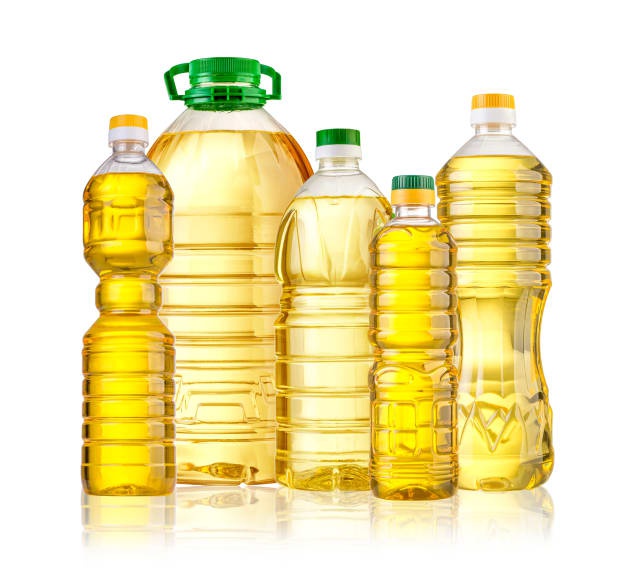
What is the distinction between filtered and unfiltered olive oil?
As I previously stated, filtering your oil lightens the flavor and color. It also cleans the oil of any contaminants (such as bits of stem, pit, etc.).
Filtering your oil also extends the time before it gets rancid.
The disadvantage is that it might make the flavor taste rather generic. Exceptional olive oil begins with great olives, usually from a single type of olive grown in a single location.
Cheap olive oil is prepared from a variety of olives sourced from all around the world. As a result, the flavor is naturally bland and generic.
Great olive oil has a unique flavor to the olive and the region where it was grown. As a result, filtering it prevents you from fully experiencing the flavor of that amazing olive.
If money isn’t an issue, go for unfiltered oils.
What causes oil to get rancid?
When oil degrades and becomes rancid, it is referred to as rancidity.
A variety of factors can cause an oil (olive or otherwise) to go rancid. Exposure to the following factors is one of them:
- Heat
- Light
- Water
- Air
That is Precisely why experts advise against storing cooking oils near a hot burner.
You’ve smelled that rotten smell from a bottle of oil or a bag of fried chips at some point in your life; a strong, slightly sour chemical smell with a hint of musky.
So, to protect the oil from getting rancid, buy smaller bottles, keep the lids on them tightly, and store away from the stove or a bright window (and a closed pantry is even better).
If you have a bottle of something in your pantry that has been sitting there for years, dump it.
Why are certain olive oils labeled with the type of olive used?
Allow me to be clear. Suppose you see Arbequina olives on a bottle of extra virgin olive oil. In that case, it signifies it was manufactured exclusively from that type of olive, most likely from olives grown in a certain area of Catalonia, Spain.
That’s excellent news!
If you buy a bottle of cheap oil that states olive oil, that corporation has most likely purchased whatever olives were the cheapest from various countries. That doesn’t mean the oil is bad in and of itself.
It does, however, imply that it will have a bland, generic flavor.
You’ll naturally prefer some olive oils over others as you taste more olive oils from different types of olives. Perhaps you prefer ones that are extremely green and flavorful? Or do you prefer the ones that are dark, rich, and peppery?
Is it necessary to store cooking oils in the refrigerator?
Hundreds of thousands of individuals have been perplexed by this question for many years.
The theory is that storing oils in the refrigerator prevents them from becoming rancid.
Of course, most oils kept in the refrigerator will become more difficult to use as they harden, thicken, or solidify. As a result, you’ll need to spoon it out or set it out on the counter before it liquifies.
Is refrigeration, on the other hand, actually beneficial?
The quick answer is no, and it is not at all. ALL oils will eventually oxidize or get rotten. Furthermore, most oils include natural antioxidants that aid in preventing deterioration.
Keep them away from the stove and bright windows, and keep the lid on tight. Ideally, please store them in a closed pantry, but there’s no need to put them in the fridge.

How long do they use oils until they go rancid when it concerns oils?
This isn’t a precise science.
For one thing, I’m not sure if you keep your bottles next to the stove or near a window that lets light in. I’m also curious if your children occasionally leave the lid off or loose.
All of these factors can impact how long your oil lasts.
First, some high-quality olive oils, like other foods, will have an expiration date. To begin, double-check that the deadline hasn’t passed.
Then, as a best practice, keep your oil in a cold, dark area with the lid tightly closed.
With all of this in mind, you could expect to get roughly a year once opened or two years if left unopened. However, if you take that long to finish a bottle, consider purchasing the smallest bottle available and consuming small quantities at a time.
Is extra virgin olive oil beneficial for you?
Different people will have different definitions of “good.”
If you enjoy olive oil, extra virgin olive oil is the only one you should use, and EVOO is far superior to any other form of olive oil in terms of health benefits.
Even better is organic extra virgin olive oil, which implies the olives were grown without chemical pesticides or artificial chemicals.
Dr. Weil writes, “Olive oil has the largest percentage of heart-healthy monounsaturated fat of any edible oil.“Antioxidants, which have been demonstrated to have cardiovascular and anti-cancer properties, are abundant in high-quality olive oil.”
Other so-called experts, such as Dr. Jeff Novick, advise minimal or no cooking oils or fats. Dr. Novick has spent years trying to disprove the so-called benefits of the Mediterranean diet, which is often based on the consumption of olive oil.
While olive oil helps boost HDL (good) cholesterol, according to Dr. Novick, “nearly all outcomes, including heart attacks (myocardial infarction), death from cardiovascular reasons, or death from any cause, were not significantly different.”
So, while “excellent” is in the eye of the beholder since most of us use olive oil, buy only extra virgin olive oil, preferably organic.
Is it possible to cook using extra virgin olive oil?
The short answer is yes.
When I sauté in a skillet, I always use extra virgin olive oil. I wouldn’t use it in a deep fryer, either, because it has a low smoke point.
Olive oil only has a 375° smoke point (similar to a burn point). Most deep fryers begin at that temperature and rise well into the 400s. As a result, the smoke from the oil will make your kitchen look like Nine Inch Nails are about to step out on stage.
While you may bake with it, you’ll want to ensure the flavor compliments what you’re creating because olive oil has a distinct flavor. For example, I wouldn’t use it to create pancakes because the olive flavor would be off-putting.
But what about a cheddar biscuit? Yes, why not?
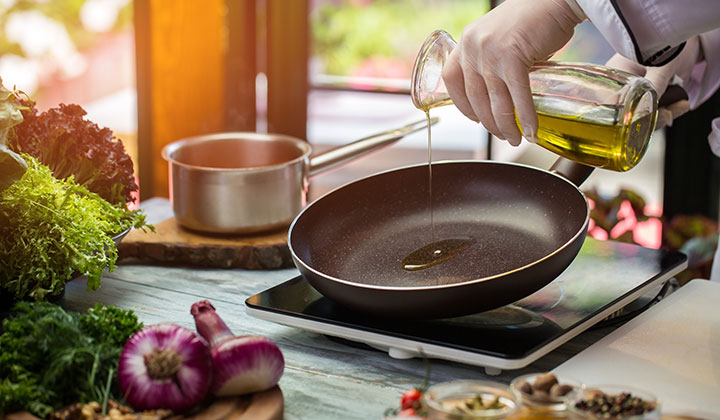
Is it true that 86% of extra virgin olive oils are fake?
In the realm of olive oil, there are a lot of con artists.
Why? Because so many people use olive oil, there is a lot of money to be made. However, it takes time to select olives, grind them, extract that teeny-tiny amount of oil, filter, bottle, label, packing, and shipping!
As a result, large producers have been looking for ways to improve the efficiency of the process and maximize revenues for many years.
This originally made headlines a few years ago when the University of California at Davis published research claiming that up to 86 percent of extra virgin olive oils sold in stores (in California) did not meet the requirements to be branded as such.
Most of the time, they discovered that the oil was virgin, not extra virgin. To be clear, they weren’t alleging the oils weren’t made from olives.
They also discovered that many of these oils were created from “poor quality oil made from damaged and overripe olives” and were blended with “cheaper refined olive oil.”
What is the best brand of extra virgin olive oil?
Changes have been made as a result of the UC Davis report.
Experts have also claimed that if you put your olive oil in the fridge and it does not become hazy, it is fake. (Hint: this isn’t a reliable method of testing).
The following are the best techniques to ensure that you are purchasing high-quality extra virgin olive oil:
- Look for oils prepared from a specific olive variety (so you know it’s not made from the cheapest olives throughout the world).
- Look for oils with a harvest date on the bottle (so you know they’re fresh).
- Look for authenticity certificates (from one of the different organizations that verify and certify olive oil)
Extra virgin olive oils are sampled, verified, and certified by a few organizations, some of which are situated in the United States and others international. They put oils to the test before stamping or sticking a sticker on the container as proof.
Sure, there are probably some excellent oils that aren’t certified (especially smaller, local growers). After all, the farmers will almost certainly have to pay for the certification, which many will be unable to do.
Is olive oil healthier than olives?
You’re receiving fiber from the meat when you eat an olive, as well as other nutrients that are pressed out when olive oil is made.
A normal bottle of extra virgin olive oil, for example, includes no cholesterol, salt, protein, fiber, or carbohydrates. It’s simply fat and calories.
On the other hand, a jar of olives has a trace quantity of iron, a small amount of fiber, and a minor amount of salt.
To be true, there aren’t many nutrients in olives that aren’t present in olive oil. On the other hand, Olives are not a high-fat food, whereas olive oil takes a lot of olives to make a jar of EVOO; many more olives than you’d eat in one sitting.
But, whether it’s olives vs. olive oil or juicing vs. eating the full fruit, eating the whole fruit or vegetable is generally healthier and better since you get all the nutrients.

What are the advantages of using olive oil?
Olive oils are naturally high in beneficial fatty acids and are derived from olives.
Many anti-inflammatory chemicals, antioxidants, and heart-healthy effects in extra virgin olive oil. Among the advantages of extra virgin olive oil are:
- Inflammation reduction
- assisting in the prevention of heart disease
- Dementia management
- assisting in the treatment of depression
- Healthy weight control
Nutritional value of extra virgin olive oil
The nutritional breakdown will be similar regardless of the sort of olive oil you choose (infused and flavored oils aside).
As a result, with one tablespoon of oil, you’d normally see the following breakdown:
- Calories 120
- Saturated fat 2.2 g
- Polyunsaturated fat 1.8 g
- Monounsaturated fat 10 g
- Total fat 14 g
- Total Carbohydrates 0 g
- Trans Fat 0 g
- 0 g dietary fiber
- Cholesterol 0 g
- Sugar 0 g
- Sodium: 0 milligrammes
- Protein 0 g
- Potassium 0 g
- 9 percent omega-6
- .76 percent omega-3
- 72 percent of the RDA for vitamin E (Recommended Daily Allowance)
- 75 percent of the RDA for vitamin K
Is extra virgin olive oil safe to put on your hair?
Olive oil can penetrate the hair follicles since it can absorb the hair shaft. Every time you apply the oil, it will condition, nourish, and revive your hair.
As we discussed earlier, extra virgin olive oil contains antioxidants, vitamin E, and vitamin A. This moisturizes a dry, flaky scalp and can aid in treating dandruff.
You can either warm the bottle of EVOO in a bowl of warm water before using it or use it at room temperature.
Begin by massaging 2-3 tablespoons into your hair, starting at the tips and working your way up to the scalp. Try to cover your head with a shower cap for about 15 minutes before rinsing, shampooing, and conditioning.
You can also use a much lesser amount every day and rub it in.
Is it OK to apply extra virgin olive oil directly to your skin?
Extra virgin olive oil can help hydrate your skin in the same way that it can benefit your hair.
Olive oil is high in vitamins and nutrients that have been proven good for the skin.
Vitamin E and A and important fatty acids and minerals are all found in EVOO.
Olive oil can soften and smooth the skin, brighten the complexion, moisturize dry skin, and assist in regulating and managing wrinkles and other symptoms of aging.
Extra virgin olive oil is used as a natural remedy for various ailments like assisting a woman in lessening the appearance of pregnant stretch marks. Apply topically and rub it into the skin gently. Of course, I would only use extra virgin olive oil for this purpose.
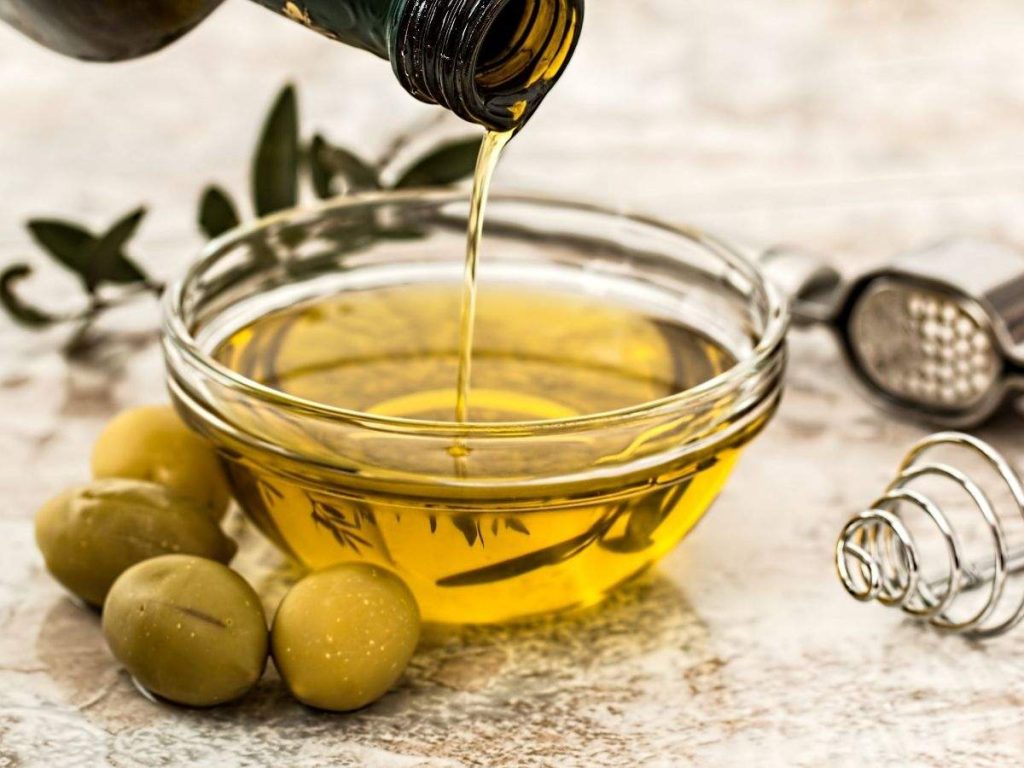
Which extra virgin olive oil is the best to buy?
Above, I discussed the differences between “fake” and “genuine” extra virgin olive oil.
If money and time were not an issue, I would seek a local producer at a farmer’s market and purchase their oil after tasting it. It’s even better if you can tour their facility (which I have done a couple of times).
However, many of us have hectic lives and cannot obtain extra virgin olive oil in this manner regularly. As a result, I’d look for one on the grocery store shelves that had:
On the bottle, there is a harvest date.
I had certification from one of the companies I named above and indicated the type of olive manufactured from.
It’s even better if you can get one that is certified organic!
Because everyone these days likes to shop on Amazon, I combed through the extra virgin olive oils available and chose the one they sell.
Dell’Orto 100 percent Organic Ultra Premium Extra Virgin Olive Oil is the oil in question.
It is certified organic and made with solely Italian olives harvested by a family who has been producing olives for 150 years on the Amalfi Coast. Dell’Orto is unrefined (although it is not clear if that means it is also unfiltered).
Surprisingly, this oil has only four and 5-star reviews, indicating a fantastic product. In 2018, it also won a silver medal in a New York extra virgin olive oil tasting competition.











